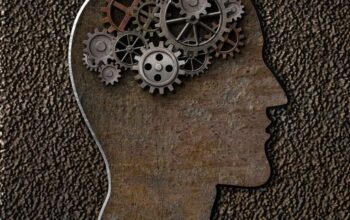Introduction
Attention Deficit Hyperactivity Disorder (ADHD) is a neurodevelopmental disorder that affects millions of children worldwide. It is characterized by persistent patterns of inattention, hyperactivity, and impulsivity that can interfere with a child’s academic performance, social interactions, and overall well-being. Early identification and appropriate interventions are crucial to support affected children and thrive. This article provides a comprehensive overview of ADHD in children, including evaluations, symptoms, and various treatment options.
Evaluations for ADHD
- Clinical Assessment: The process begins with a thorough clinical evaluation conducted by a healthcare professional. The evaluation typically involves gathering information from parents, teachers, and caregivers, as well as observing the child’s behavior in various settings.
- Diagnostic Criteria: ADHD is diagnose using the criteria outlined in the Diagnostic and Statistical Manual of Mental Disorders (DSM-5) published by the American Psychiatric Association. The DSM-5 lists specific symptoms and their duration required for an ADHD diagnosis.
- Behavioral Assessments: Behavioral rating scales, such as the Vanderbilt Assessment Scale, Conners’ Rating Scales, or ADHD Rating Scale, are commonly used to assess the severity of ADHD symptoms and track treatment progress.
- Neuropsychological Testing: In some cases, a neuropsychological assessment may be recommende to evaluate cognitive functions and rule out other possible learning or developmental disorders.
Symptoms of ADHD
Inattention:
- Difficulty sustaining attention on tasks or play activities.
- Frequently making careless mistakes in schoolwork or other activities.
- Struggling to follow through on instructions or complete tasks.
- Frequently losing items required for tasks or activities.
- Being easily distracte and forgetful in daily activities.
Hyperactivity:
- Excessive fidgeting or squirming when seated.
- Difficulty remaining seated in situations where it is expecte.
- Running or climbing excessively, even in inappropriate situations.
- Feeling restless or on the go as if “driven by a motor.”
Impulsivity:
- Blurting out answers before questions have been complete.
- Difficulty waiting for their turn in conversations or games.
- Interrupting or intruding on others’ conversations or activities.
Treatment Options
Behavioral Therapy:
- Parent Training: Parents can participate in training programs that teach effective strategies for managing ADHD symptoms and promoting positive behaviors in their children.
- Behavioral Interventions: Behavioral therapists work directly with the child to reinforce desired behaviors and teach coping skills for challenging situations.
Medication:
- Stimulants: Medications like methylphenidate and amphetamines are commonly prescribe to help improve attention and reduce hyperactivity in children with ADHD.
- Non-stimulants: For children who don’t respond well to stimulants or experience adverse side effects, non-stimulant medications like atomoxetine may be consider.
Educational Support:
- Individualized Education Plan (IEP): An IEP can be develope to provide tailore academic accommodations and support in the classroom setting.
- 504 Plan: For children who do not qualify for an IEP, a 504 Plan can offer specific accommodations to address their needs.
Parental Support:
- Parent Support Groups: Connecting with other parents facing similar challenges can offer emotional support and practical advice.
- Educational Resources: Accessing reputable information about ADHD can empower parents to better understand and advocate for their child’s needs.
Lifestyle Interventions:
- Healthy Diet: Encouraging a balanced diet rich in nutrients can contribute to overall well-being and potentially improve ADHD symptoms.
- Regular Exercise: Physical activity has been shown to help reduce hyperactivity and improve focus in children with ADHD.
Conclusion
ADHD is a complex and often misunderstood disorder that significantly impacts affected children and their families. Early identification, accurate evaluations, and appropriate interventions are vital for providing support and improving quality of life for children with ADHD. A multi-faceted approach, including behavioral therapy, medication, educational support, parental involvement, and lifestyle changes, can help children with ADHD reach their full potential and lead fulfilling lives. With the right support and understanding, these children can thrive and succeed in various aspects of their lives.




